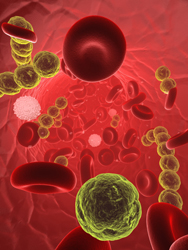Strengthening immunity for South American youth
Infectious enteric (gut) and respiratory diseases remain a significant threat to childhood health in developing countries in South America. Many of the bacteria responsible enter the body through the mucosa (moist linings of organs) including the respiratory and digestive tract. The 'Novel therapeutic and prophylactic strategies to control mucosal infections by South American bacterial strains' (Savinmucopath) project studied some of the bacteria causing these potentially lethal infections. The overall aim was to develop effective immune-intervention measures. Three key species of bacteria that are mucosal and pose the worst damage to public health were selected by the Savinmucopath team - specific strains of Streptococcus, Salmonella and Bordetella. Indigenous to developing countries in South America, they are associated with high rates of sickness and even death in children living in poor socioeconomic conditions. the scientists analysed genetically controlled protein responses to mucosal infection in animal models. Consequently they were able to screen out the bacterial compounds that induced mucosal immunity. The next step was to identify the protective mechanisms and infection processes that can alter host innate responses to Streptococcus and Salmonella. as part of the host's defence mechanism, bacteria are 'sensed' by the recognition of pathogen-associated molecular patterns (PAMPs) which bind to receptors in the innate immune system. Potential vaccine formulas that incorporate PAMPs will provide a more effective form of protection and Savinmucopath scientists demonstrated that use of the molecular patterns can be harnessed to upgrade immune responses to the three bacteria under scrutiny. project research resulted in no less than 34 articles published in scientific journals with plans for more publications. A course, 'Mucosal Innate and Adaptive Immunity', for PhD and post-doctoral students and conferences achieved a high degree of training and helped the dissemination of information. savinmucopath research promises to deliver a profound impact on the development of adjuvants to help fight mucosal infections and the further study of vaccines. As a study on the mechanics of the innate immune system, the project may also provide a platform for investigation into prevention of other diseases.







